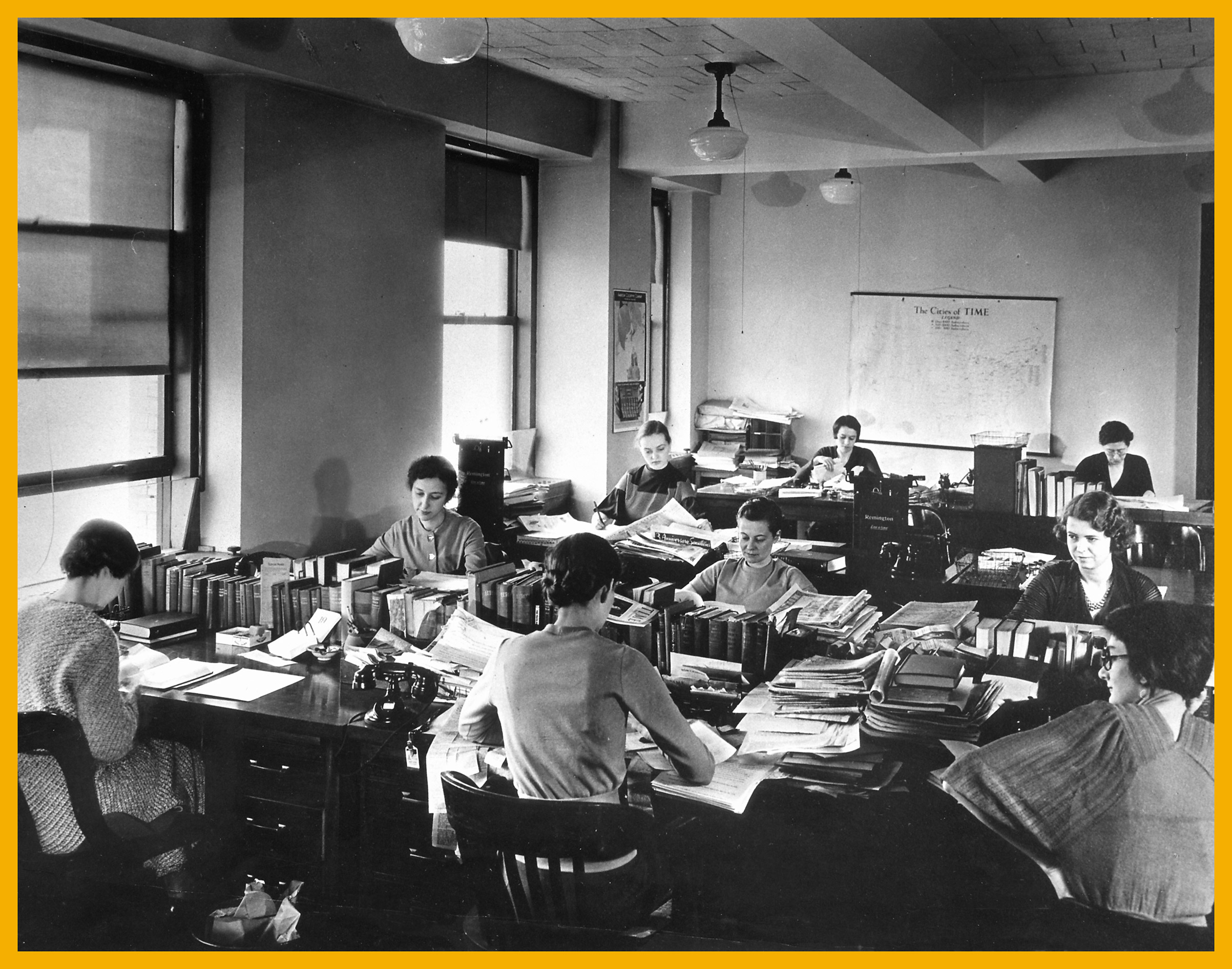Here’s How the First Fact-Checkers Were Able to Do Their Jobs Before the Internet

At TIME Magazine’s 20th anniversary dinner, in 1943, the magazine’s co-founder Henry Luce explained to those gathered that, while “the word ‘researcher’ is now a nation-wide symbol of a serious endeavor,” he and co-founder Briton Hadden had first started using the title as part of an inside joke for a drinking club. “Little did we realize that in our private jest we were inaugurating a modern female priesthood — the veritable vestal virgins whom levitous writers cajole in vain,” he said, “and managing editors learn humbly to appease.”
Luce’s audience nearly 75 years ago is not the only group to wonder about the origins of fact-checking in journalism, though the casual sexism of the 1940s would no longer fly. Today, especially amid concern over so-called “fake news” and at a time when it may seem inconceivable that checking an article would be possible without the Internet, it remains a natural question: How did this journalistic practice begin?
